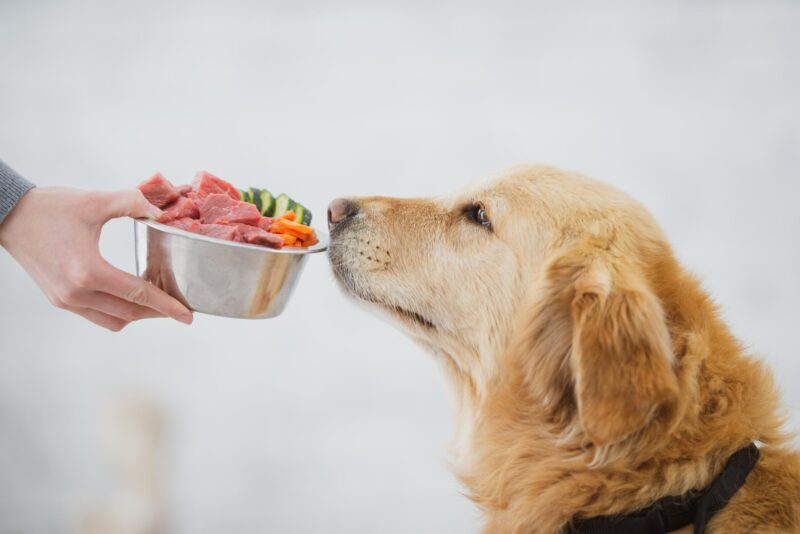
Pets and people alike celebrate and promote National Nutrition Month. Every March, we can collectively pivot towards fresh fruits, deliciously satisfying veggies, and fortifying whole grains. This is also a great time to embrace more exercise and, let’s face it, fewer treats. This March, we can make a meaningful impact on pet health and vitality that lasts all year (and beyond).
We Are What We Eat
Carefully chosen pet food hopefully curbs their hunger, but their daily meals can do a lot more than keep the grumbles at bay. In fact, pet food has the potential to determine the state of a pet’s long-term health.
We recommend choosing pet food that meets the daily requirements of pets of specific life stages. Puppies and kittens grow at rapid rates and have highly specific nutritional needs that support their development. Similarly, senior pets may have symptoms of certain health conditions that are reduced by the nutrients and minerals found in senior food products.
Healthy Pet Food
Commercial pet foods have varying combinations of proteins, fats, carbohydrates, fiber, minerals, vitamins, and many other hard-to-pronounce ingredients. Because food labels can be so confusing, we work closely with pet owners to find the right food for each individual pet. When paired with daily exercise and enrichment, healthy pet food is a major contributor to overall wellness.
Limiting or eliminating commercial pet treats is an important step to achieving optimal pet nutrition. It may take some time to wean a pet off their beloved treats, but the impact of the following natural, healthy pet foods cannot be underestimated:
- Apples (small cubes or thin slices, always remove the seeds)
- Banana bites
- Cantaloupe
- Unsweetened, low-fat plain yogurt
- Unsweetened pumpkin
- Peanut butter (always chose Xylitol-free varieties)
- Steamed carrots, sweet potato, or green beans
- Berries
- Brown rice
- Millet
- Oatmeal
If your pet has a real hunger that cannot seemingly be sated by the above, offer them small bites of plain lean white meat (no bones), or dried fish.
The items should never be offered to pets or left out for them to try on their own:
- Grapes/raisins
- Garlic
- Onions
- Fruits with pits (cherries, peaches, plums, apricots)
- Avocados (high in fat, but the pit, skin, and stem can be toxic if ingested)
- Macadamia nuts
Healthy Pet Diets
If your pet is overweight or obese, it is crucial to help them lose weight. That said, it is a process that must be done under the guidance of a veterinarian, and done slowly. Adjusting portions, food products, and schedules may be valuable methods to losing excessive weight. We are happy to help you get started.
Please give us a call at (985) 646‑2025 with any questions or concerns. Our team at Brownswitch Pet Hospital is always happy to help your pet achieve their nutritional goals.
